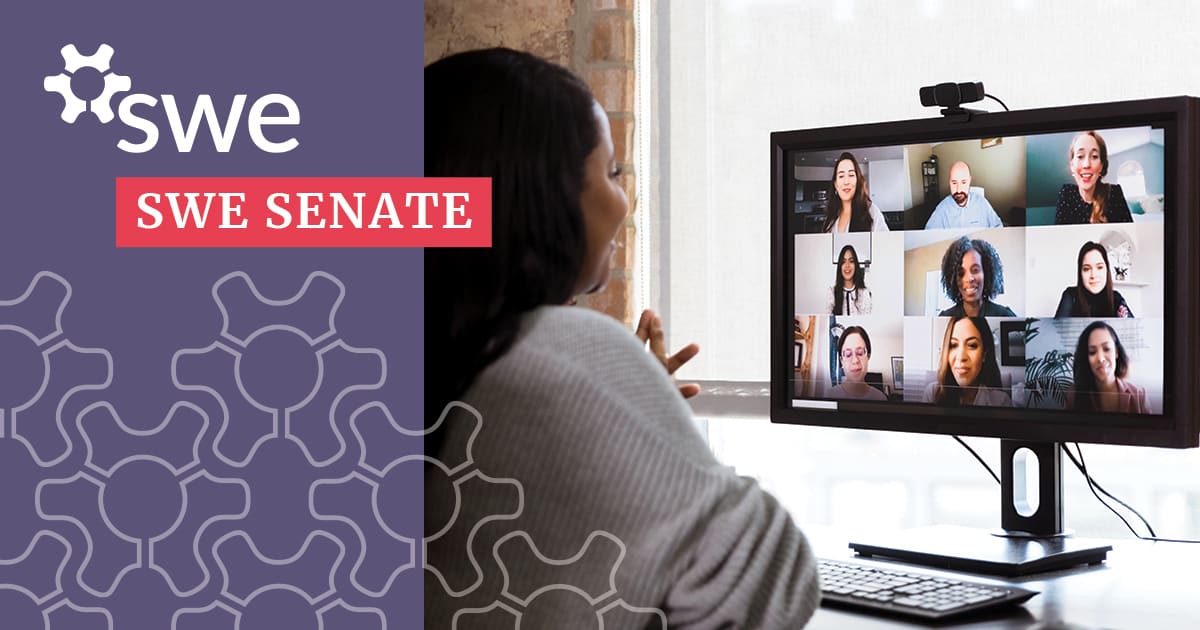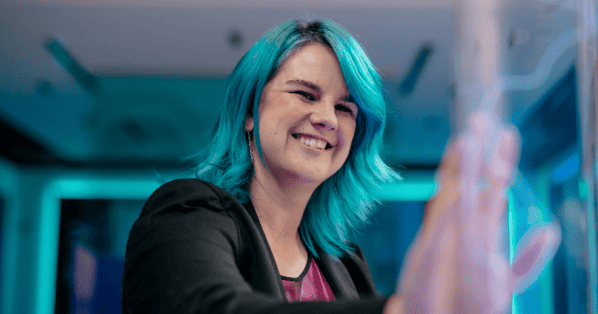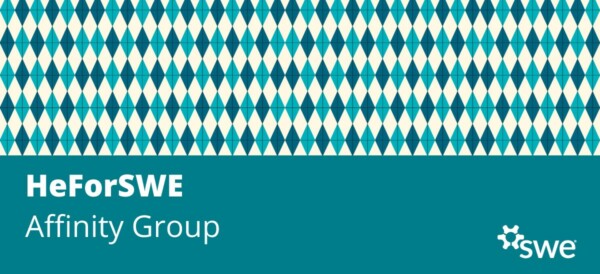The current COVID-19 pandemic has pushed many organizations to adopt new practices to support employees working from home to ensure employee health and safety. While this change has impacted nearly every sector and employee/employer around the globe through shifting to more remote work and digital technologies, the common ways of working were shifting even before. We had already started to see the emergence of hybrid working environments–work performed by a blending of people and machines, the workforce a blending of traditional, full-time employees and flexible workers, and the workplace a blending of physical and virtual interactions [1-4]. Put simply, the work (what), the workforce (who), and the workplace (where) are undergoing a transformation which has been accelerated by the current global situation. This transformation is influencing not only the operational aspects of work (i.e., doing work, finding work, career transitions), but also the relational aspects of work (teamwork, organizational culture, globalization).
Back in 2016, SWE learned from its National Gender Culture Study that, “women leave engineering not because they lack the courage to lean in, or because of work/life integration issues, or even because they aren’t evaluated and promoted fairly. Women leave the profession after working in environments that tolerate persistent obstacles to attaining their company and career goals[5]“. Women leave the engineering profession because of organizational climate, which is tied to the relational aspects of work, especially those that are misaligned with women’s top values of balance and teamwork. To consistently acquire and retain top talent, companies need a supportive and engaging culture. One of high quality that encourages work that is valuable and meaningful. Moving forward, the retention and growth of a diverse workforce will change as the who, what, and where of work change. SWE can be on the forefront of what it means to improve the organizational climate and culture for women (e.g., inclusion, equity, fluid/flexible work) as they evolve. Considering the history and current trends, the Senate established a strategic initiative on the topic of changing work.
The Senate’s FY21 Changing Work Sub-team is exploring the changing who, what, and where of work and its impact on women, with an emphasis on who and where. This initiative aligns with the society’s strategic goals of globalization, professional development, and diversity & inclusion. The sub-team is comprised of the following members:
- Jacquelyn K. Nagel (Lead)
- Megan Schulze (Vice Lead)
- Kaitlyn Bunker
- Alya Elhawary
- Kris Acosta
- Marta Wicke
- Denise Soria
- Erica Messinger
- Dayna Johnson (BOD Advisor)
Our goal is to better align SWE’s business model and value proposition with the changing needs of our members as their work, the workforce, and the workplace change. From our initial investigation and conversations it was clear that:
- member needs are changing given the rise of cross-cultural and freelance work;
- career transitions are happening without in-person interactions;
- relationship building in a virtual setting is much harder;
- inequitable access to technology can cause a workforce gap;
- some are shifting into non-engineering roles;
- building and maintaining organizational culture across different mediums is critical; and
- virtual walls are yet another barrier women face.
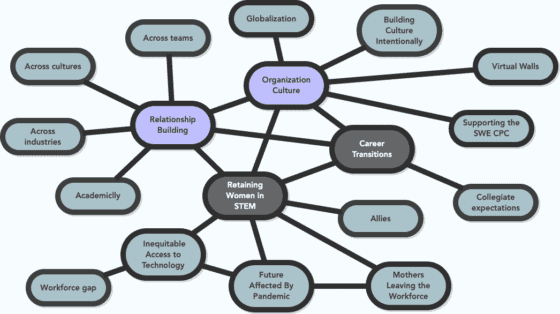
Therefore, our deep dive into this topic is from two perspectives: organizations and members. The organization focus (questions 1 and 2 below) is an opportunity to understand how professional societies influence companies with respect to the changing who, what and where of work. The member focus (questions 3 and 4 below) is an opportunity to understand how professional societies can support members with respect to the changing who, what and where of work. The research questions we are working on include the following:
- How do organizations like SWE impact organizational culture through supporting relationship building, accessibility and globalization?
- How can SWE be a thought leader on defining the workplace in the future to retain and attract women in STEM?
- How are women impacted by the changing workforce/place?
- How are STEM collegians supported (or not) in their transition into the changing workforce?
As we look to the future of how work gets done, we can learn from the pandemic situation and other trends that started before to inform how SWE can best support our members and member organizations in the face of changing ways of working. If you have any questions, feel free to reach out to your SWE Senators at senators@swe.org.
References:
- Schwartz, J., Hatfield, S., Jones, R., and Anderson, S. (2019) “What is the future of work? Redefining work, workforces, and workplaces.” Deloitte Insights.
- Kark, K., Briggs, B., Terzioglu, A., Puranik, M. (2019) “The future of work in technology.” Deloitte Insights.
- Lund, S. et al. (2019) “The future of work in America People and places, today and tomorrow.” McKinsey Global Institute.
- Autor, D., Mindell, D., Reynolds, E (2019) “The Work of the Future: Shaping Technology and Institutions.” MIT task force on the work of the future.
- https://alltogether.swe.org/2016/04/women-leave-engineering-swe-gender-culture-study/
Author
-
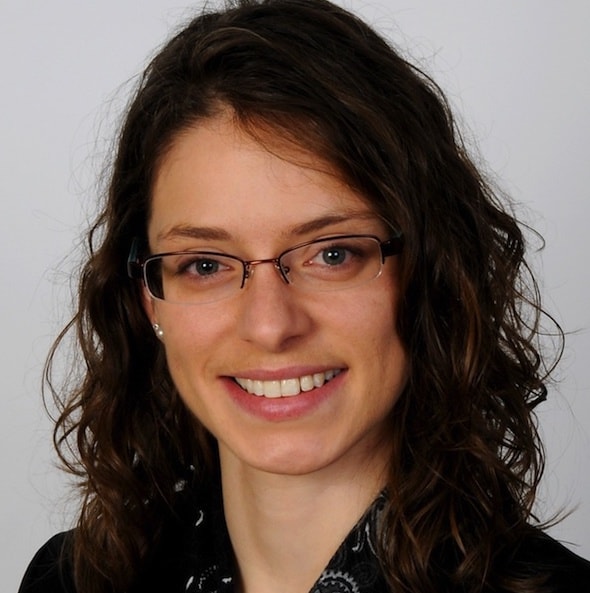
Jacquelyn K. Nagel, Ph.D. is a an FY19-21 Senator and a Life Member of the Society. She has been a volunteer leader in various levels of SWE governance for over 17 years, initially as a collegiate member and now as a professional member. Jacquelyn is a tenured faculty member at the rank of Associate Professor and is the Assistant Department Head in the Department of Engineering at James Madison University. She is an internationally recognized expert for her research work in the areas of biologically inspired design process and pedagogy.

